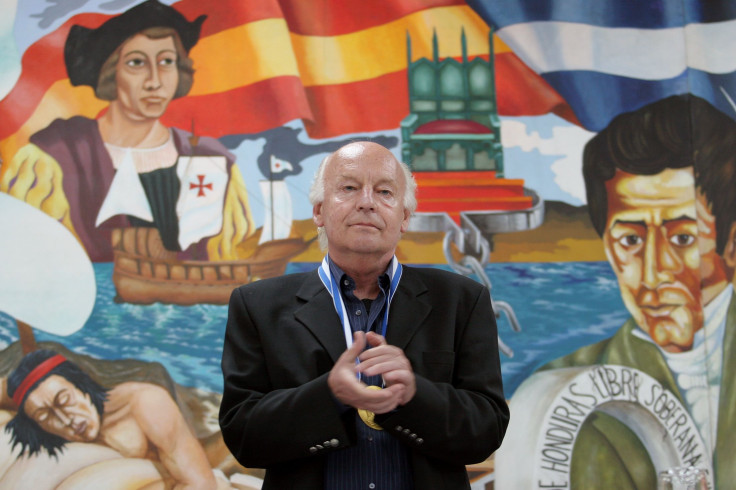
Uruguayan author Eduardo Galeano died last year in Montevideo at the age of 74. Galeano, who was a contributor at Brecha (the weekly publication that broke the sad news about his death), had been battling lung cancer for several months.
Eduardo Galeano was an award winning writer most famous for his 1971 classic anti-imperialist book "Las venas abiertas de América Latina," or "The Open Veins of Latin America." The book exposes details of the continent's exploitation by the hand of foreign capitalist and imperialist powers, from Spanish colonization five centuries ago and to the continued exploits by the United States today. Eduardo Galeano's "The Open Veins of Latin America" continues to inspire new generations of Latin Americans today.
The radical book was banned across the continent, including Galeano's home country of Uruguay, for years. Galeano was also arrested and exiled after Juan Maria Bordaberry took control over Uruguay in 1973 by military coup.
Today, "The Open Veins of Latin America" is widely praised for its courage and is translated to at least 20 languages. The Guardian also called Eduardo Galeano "one of the most well-known and celebrated writers in Latin America" in a piece written in 2009.
To honor Eduardo Galeano on the first anniversary of his death, here are some of the most memorable and inspiring quotes from the Latin American author:
"La memoria sabe de mí más que yo; y ella no pierde lo que merece ser salvado."
"Nos podrán quitar las flores, pero nunca la primavera. "
"El subdesarrollo no es una etapa del desarrollo. Es su consecuencia."
"Si Eva hubiera escrito el Génesis, ¿cómo sería la primera noche de amor del género humano? Eva hubiera empezado por aclarar que ella no nació de ninguna costilla, ni conoció a ninguna serpiente, ni ofreció manzanas a nadie, y que Dios nunca le dijo que parirás con dolor y tu marido te dominará. Que todas esas historias son puras mentiras que Adán contó a la prensa."
"Si le niegan la boca, ella habla por las manos, o por los ojos, o por los poros, o por donde sea. Porque todos, toditos tenemos algo que decir a los demas; alguna cosa que merece ser por los demas celebrada, o perdonada."
"¿Para qué escribe uno si no es para juntar sus pedazos?"
"La historia es un profeta con la mirada vuelta hacia atrás: por lo que fue, y contra lo que fue, anuncia lo que será."
"I don't believe in charity. I believe in solidarity. Charity is so vertical. It goes from the top to the bottom. Solidarity is horizontal. It respects the other person. I have a lot to learn from other people."
"The Church says: the body is a sin.
Science says: the body is a machine.
Advertising says: The body is a business.
The Body says: I am a fiesta."
"Each person shines with his or her own light. No two flames are alike. There are big flames and little flames, flames of every color. Some people's flames are so still they don't even flicker in the wind, while others have wild flames that fill the air with sparks. Some foolish flames neither burn nor shed light, but others blaze with life so fiercely that you can't look at them without blinking, and if you approach you shine in the fire."
"We are all mortal until the first kiss and the second glass of wine."
"I have never killed anybody, it is true, but it is because I lacked the courage or the time, not because I lacked the desire."
"I am not particularly interested in saving time; I prefer to enjoy it."
"The walls are the publishers of the poor."
"If the past has nothing to say to the present, history may go on sleeping undisturbed in the closet where the system keeps its old disguises."
"The big bankers of the world, who practise the terrorism of money, are more powerful than kings and field marshals, even more than the Pope of Rome himself. They never dirty their hands. They kill no-one: they limit themselves to applauding the show."
"In this world of ours, a world of powerful centers and subjugated outposts, there is no wealth that must not be held in some suspicion."
"Our defeat was always implicit in the victory of others; our wealth has always generated our poverty by nourishing the prosperity of others - the empires and their native overseers. In the colonial and neocolonial alchemy, gold changes into scrap metal and food into poison."
© 2025 Latin Times. All rights reserved. Do not reproduce without permission.




